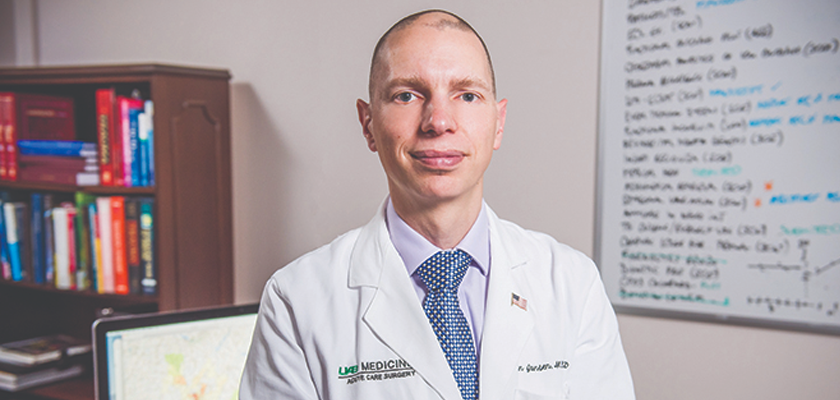The year 2022 was one of Birmingham's most violent years in modern history. The city closed off the year with 144 homicides, many of which were a result of shootings. Now, the University of Alabama Birmingham (UAB) is teaching the public how to help save someone who's been shot.
UAB is participating in the Stop the Bleed (STB) campaign to inform people about how to prevent excessive blood loss from an injured victim. This, UAB asserts, will improve victims' chances of survival before medical professionals can arrive at the scene.
STB is organized by the American College of Surgeons (ACS) after the shooting at Sandy Hook Elementary School shooting in Newtown, Conn., in 2012.
UAB has been designated a Level I Trauma Center by the ACS. It is the only one in Alabama.
The program will offer training from both medical and military personnel and provide equipment such as tourniquets, compression bandages, gauze, hemostatic dressings and protective gloves. It will consist of a brief PowerPoint presentation followed by small group sessions with three or four students per instructor. The instructors will demonstrate the process of curtailing blood loss on mannequins, and then trainees will be allowed to apply to tourniquet to the instructor.
Director of Research for the UAB Division of Acute Care Surgery Jan Jansen said that stopping blood loss is more straightforward than most people think.
"Put pressure where the blood is spurting out or apply a tourniquet. It's really as simple as that," Jansen said. "But for people who don't have the background, there is an understandable reluctance and anxiety when faced with somebody who has visible injuries and is bleeding. They think they need a professional. The message we're trying to get across is that this isn't that complicated. If there is visible bleeding, you can stop it with direct pressure or a tourniquet. You can't really do a lot wrong there."
The last time Birmingham homicides numbered above 130 in a single year was in the early 1990s. Birmingham homicides have been on the rise since 2018. In 2020, there were 122 homicides, followed by 132 in 2021. The city has seen at least seven homicides since December 18 alone.
If you wish to participate or offer support to UAB's Stop the Bleed program, you can contact Jennifer Foster at 205-934-2875 or jenfost1@uab.edu.
To connect with the author of this story, or to comment, email will.blakely@1819news.com or find him on Twitter and Facebook.
Don't miss out! Subscribe to our newsletter and get our top stories every weekday morning.










